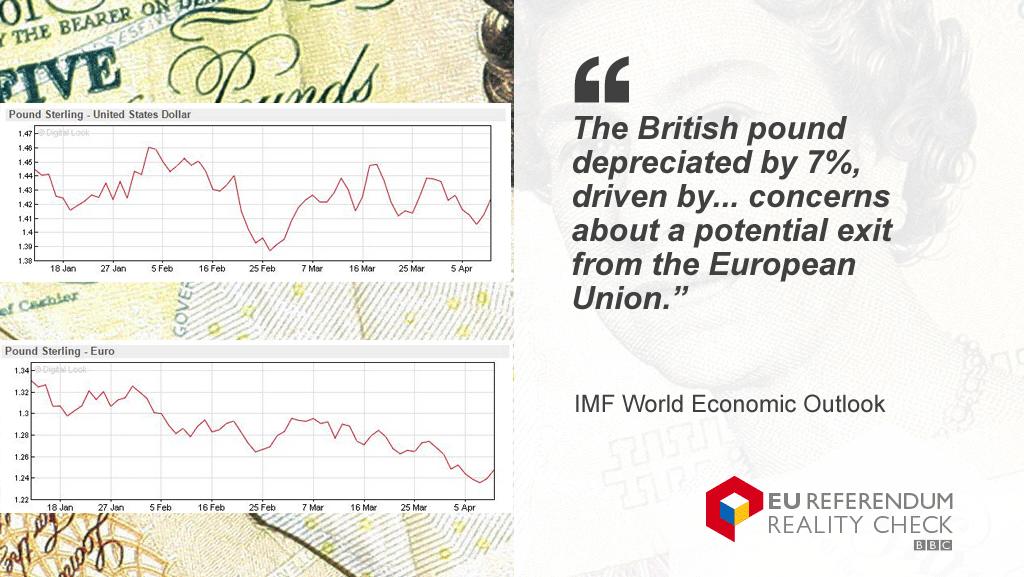Reality Check: Has referendum weakened the pound?
- Published

The International Monetary Fund's latest World Economic Outlook says the EU referendum campaign has created uncertainty for investors and weakened the pound.
The IMF also has strong warnings about what a Brexit would do to the economy, and the Reality Check team will look forward to evaluating those next month, when the IMF gives the full detail of its forecasts.
But it is worth bearing in mind the IMF describes itself as an organisation "working to foster global monetary cooperation". It is hardly surprising a potential Brexit would not be its cup of tea.
It actually cited two reasons for the currency's weakness, saying between August 2015 and February 2016 "the British pound depreciated by 7%, driven by expectations of a later normalisation of monetary policy in the United Kingdom and concerns about a potential exit from the European Union".
The point about the "later normalisation of monetary policy" means as a result of the general weakness of the economy, the expected date of the first rise in interest rates from the Bank of England was delayed.
The IMF is presumably comparing the pound with a selection of currencies. Between the beginning of August and the end of February, the pound actually fell about 11% against the US dollar and 10% against the euro.
How much of this was due to the referendum and how much was down to other factors?
Well, the referendum date was not confirmed until 20 February, but it was widely expected to be announced.
There was a pretty sharp fall in the value of the pound around the time of the announcement, as you can see from the graphs, although that particular dip was relatively short-lived.
So, how much of the pound's fall was down to uncertainty surrounding a potential Brexit as opposed to factors such as interest rate expectations?
As we have discussed before, predicting uncertainty cannot be seen as a controversial forecast, and it is generally accepted markets do not like uncertainty.
So it is fair to say some of the fall in the pound has been due to the potential for Brexit - it is a factor that has been cited regularly in analysts' reports. The Office for Budget Responsibility, external cited some of the banks predicting weakness for the pound.
But given the result of the referendum will have implications for the economy for decades to come, a bit of weakness in the pound ahead of the vote should not be seen as too worrying a factor.
In particular, a weak pound is not a bad thing for everyone - it is good news for many exporters in the UK.
Reality Check verdict: The referendum debate is likely to be one of the factors weakening the pound, but things like delayed interest rate rises are also responsible.



- Published22 February 2016
